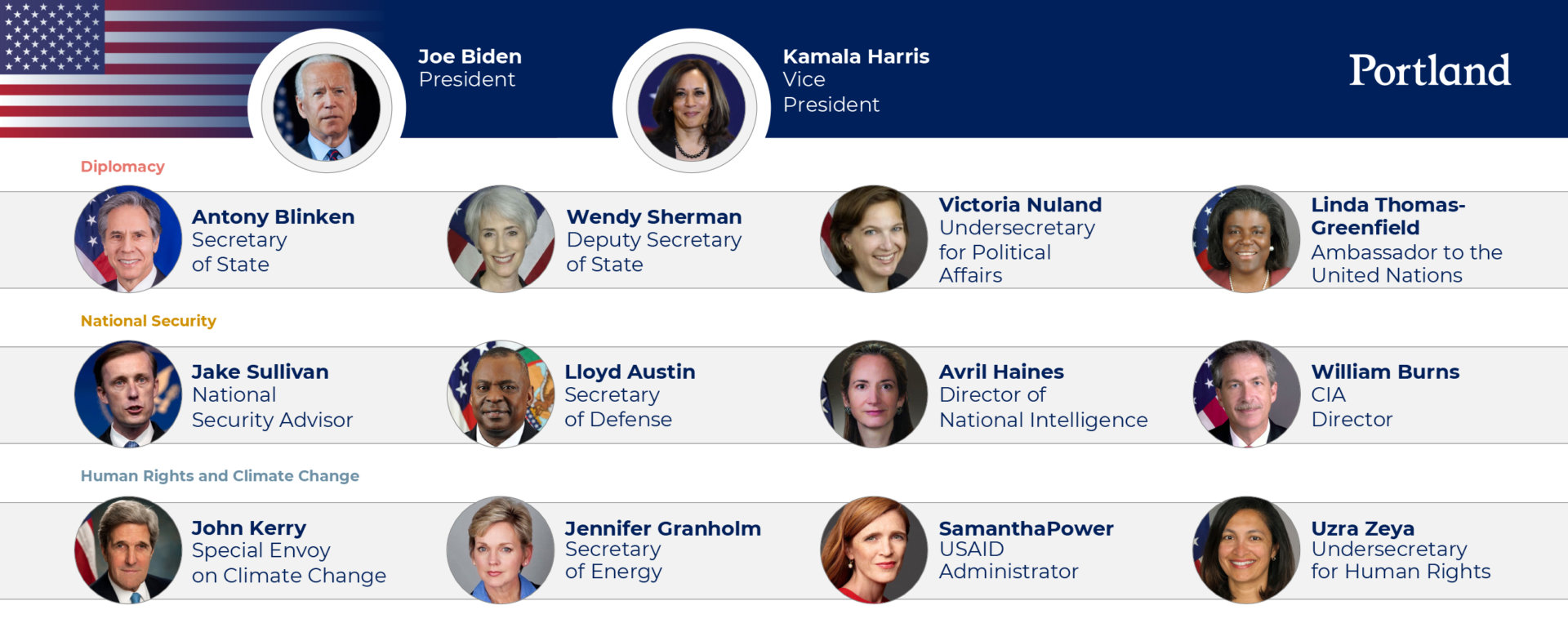Overview
As a candidate, President Joe Biden repeatedly spoke of a return to normalcy and promised world leaders that America would be back if he won the White House. What does this mean now that Biden has swapped the campaign trail for the Oval Office?
Climate change is treated as a national security issue; foreign policy focused on ways that benefit the middle class; and after four years of being ignored, human rights serves as a central pillar.
The creation of a special envoy for climate change signals the importance of this issue to Biden and other departments will create roles with a climate change portfolio. While governments will naturally welcome a return to more predictable diplomacy, the ways in which Biden’s foreign policy team puts human rights and climate change at the heart of its international strategy will present the greatest challenges and opportunities for groups looking to work with the US over the next four years.
Human Rights
Skip to:
“We must start with diplomacy rooted in America’s most cherished democratic values: defending freedom, championing opportunity, upholding universal rights, respecting the rule of law, and treating every person with dignity.”
President Joe Biden address to the US Department of State, 4th Feb 2021
WHO TO WATCH
The Biden administration has recruited career diplomats and foreign policy experts including individuals with a background in human rights. Biden and his team of foreign policy experts will make human rights a driving force in US foreign policy, a stark change to what we saw under the Trump administration which rarely criticized foreign adversaries for their human rights violations and even applauded the actions of authoritarian leaders.
Key Players:
- Antony Blinken – Secretary of State
- Linda Thomas-Greenfield – Ambassador to the UN
- Samantha Power – USAID Administrator
- Wendy Sherman – Nominee for Deputy Secretary of State
- Uzra Zeya – Nominee for Under Secretary of State for Civilian Security, Democracy and Human Rights
RECENT ACTIONS
The Biden administration’s early foreign policy tests and actions have revolved around protecting human rights around the world. In conversations with world leaders, human rights have featured prominently. Some of these actions signpost future policy directives and others have been reactive to crises around the world.
China
- In his first call with Chinese President Xi Jinping Biden raised the issue of human rights abuses against protesters in Hong Kong and the genocide against the Uighurs. He asserted that Xi knows there will be repercussions for China’s human rights violations.
United Nations Human Rights Council
- Blinken announced that the US is rejoining the UN Human Rights Council, reversing one of the many moves Trump made to distance the US from multilateral organizations. Blinken stated that the US needs to be at the table, working to improve the Council through US leadership.
Russia
- The arrest of Alexei Navalny and the brutal crackdown on political protests by the Russian government presented an early test of Biden’s ability to defend human rights while balancing US interests; in this case renewal of the New START treaty. Biden has called for Navalny’s release and raised human rights in a call with Russian President Vladimir Putin; further sanctions on Russia were announced this week.
Myanmar
- Biden ordered new sanctions against the military regime in Myanmar following the coup that included the arrest of Aung San Suu Kyi. In order to mitigate any additional humanitarian crises, the Biden administration has stated that it would be careful to not hinder support of “health care, civil society groups, and other areas that benefit the people of Burma directly”.
Challenges and Opportunities
- After four years of relegation to a second-tier interest, human rights’ return as a key pillar of American foreign policy will create opportunities for NGOs and multilateral groups to work constructively with an engaged American administration.
- Governments will have to adjust to an American government that applies swift financial sanction to violations of human rights and is committed to leveraging multilateral organizations to enforce rights around the world.
- Companies will have to monitor their supply contracts in countries facing sanctions e.g. clothing manufacturers with factories in Xinjiang.

